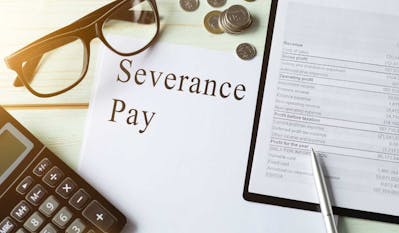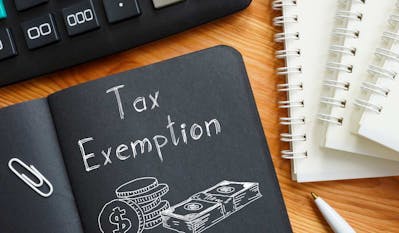No matter where a person lives, they only pay taxes on income sourced within Hong Kong. However, in some cases, certain types of income from other countries might still be taxed if it is connected to Hong Kong. But businesses can get tax exemptions if they meet special rules.
What kinds of profits need to be taxed? What are the rules? In this article, we will answer these questions.
How Does Hong Kong’s Tax System Work?
Hong Kong has a straightforward tax system that only applies to income earned within its borders. If your income comes from outside Hong Kong, it’s generally not taxed here.
For businesses, Hong Kong uses a two-tier tax rate. The first HKD 2 million in profits is taxed at 8.25%. Anything above that is taxed at 16.5%.
There’s no tax on capital gains, dividends, or interest income, which makes Hong Kong attractive for business owners and investors. Its low tax rates and proximity to Mainland China also make it a popular base for regional business.
Unlike many places with complex tax rules, Hong Kong keeps it simple. Individuals and companies are only taxed on three types of income: profits, salaries, and property. If income doesn’t fall into one of these categories, it’s not taxed.
Profits Tax
Businesses in Hong Kong pay tax on the income they earn inside the city. In 2024, companies will pay 16.5% in taxes on their profits. Small businesses, like partnerships and one-person businesses, pay a lower tax rate of 15%.
If a business earns income from outside Hong Kong, that income is not taxed. Also, there is no tax on dividends or capital gains (profits from selling things like stocks or property).
Property Tax
If someone owns a property in Hong Kong and rents it out, they have to pay property tax. The tax rate is 15% of the rental income. But before paying tax, the owner can subtract some costs, like income paid for government rates and 20% of the rental income for repairs and maintenance.
This means owners don’t have to pay tax on the full amount they earn from rent, only on the part left after these deductions.
Salaries Tax
People who work in Hong Kong pay a tax on their salary. The tax rate changes based on how much income they make, starting at 2% and going up to 17% in 2024. People can lower their tax by using deductions, such as personal allowances, mortgage interest, and education expenses for their children.
Besides these three main taxes, Hong Kong also has some smaller taxes, like stamp duty (on property and stock transactions) and betting duty (on gambling).
One reason businesses like Hong Kong is that it does not have many common taxes found in other countries. Hong Kong does not have:
- Sales tax or VAT
- Withholding tax
- Capital gains tax
- Estate tax
The Inland Revenue Department (IRD) is in charge of collecting taxes. The tax year in Hong Kong runs from April 1 to March 31. Businesses can choose their own fiscal year if they want. Because of its low taxes and simple tax rules, Hong Kong is a great place for businesses to grow.
How Are eCommerce Businesses Taxed in Hong Kong?
Every country has different tax rules for online businesses. In Hong Kong, eCommerce taxes mainly fall into two categories, profits tax and sales tax.
Understanding these tax rules is essential for business owners, regardless of whether they are just starting out or have been operating for years.
Sales Tax vs. GST
Sales tax is a tax applied at the time of purchase, where the seller collects the tax from the buyer and later remits it to the government. Goods and Services Tax (GST) is another form of indirect taxation, applied to goods and services, where the customer ultimately bears the cost while businesses collect and transfer the tax.
However, Hong Kong does not impose sales tax or GST, making it an attractive location for shoppers. This lack of consumption tax is one of the reasons why Hong Kong remains a popular destination for both consumers and businesses.
Do You Need to Charge Sales Tax for Online Sales?
When establishing an online store in Hong Kong, businesses may initially sell products locally before expanding to international markets. This raises the question of whether sales tax should be applied to international orders.
Since Hong Kong does not impose sales tax or Goods and Services Tax (GST), businesses are not required to charge these taxes on online sales.
However, customers in other countries may be subject to import duties or local taxes upon receiving their orders. Businesses should inform customers about potential tax obligations in their respective countries before completing a purchase.
How Can You Calculate Profits Tax for Your Online Business?
Businesses are required to pay profits tax based on their taxable income. The amount of tax owed by an eCommerce business can be determined using the following formula:
Taxable Income = Total profits – income that isn’t taxed – business expenses – unused losses + balancing charge – capital allowances
To simplify the calculation, businesses must have a clear understanding of their profits, expenses, and eligible tax deductions. Maintaining accurate financial records ensures a more efficient and accurate tax assessment.
Understanding the Tax Year & Filing Returns
In Hong Kong, the tax year (Year of Assessment - YA) runs from April 1 to March 31 of the following year. Businesses must file their Profits Tax Return (PTR) within one month after receiving it from the Inland Revenue Department (IRD). If a company is newly registered, the IRD will issue its first PTR 18 months after incorporation.
What Needs to Be Filed?
Companies must submit the following documents to the IRD:
- Profits Tax Return form issued by the IRD
- Supplementary form with financial and tax details
- Audited financial statements, including balance sheet and profit & loss statement
- Tax calculation showing how assessable profits were determined
Small businesses (earning less than HKD 2 million) do not need to submit supporting documents upfront, but they must keep them for future requests. Branch offices in Hong Kong must also file annual tax returns, and the IRD may ask for audited financial statements of the parent company.
Hong Kong follows a two-tier tax system:
| Profits | Corporations | Unincorporated Businesses (e.g., sole proprietors, partnerships) |
|---|---|---|
| First HKD 2 million | 8.25% | 7.5% |
| More than HKD 2 million | 16.5% | 15% |
In 2019, 100% of the profits tax was waived up to HKD 20,000. This means the first HKD 242,424 of income for corporations and HKD 266,667 for unincorporated businesses was effectively tax-free.
Why are Audits important?
Every company in Hong Kong must prepare a financial report every year. This report includes a balance sheet, a profit and loss statement, and a cash flow statement. A certified public accountant (CPA) must review and approve these reports through a process called an audit.
Audits are important because they ensure that a company’s financial records are correct and enhance financial credibility and regulatory compliance. These reports provide accountability and must be prepared every year to keep businesses transparent and compliant with Hong Kong's rules.
How Do Accounting Rules Work in Hong Kong?
Hong Kong has its own set of accounting rules, separate from those in Mainland China. These standards are developed by the Hong Kong Institute of Certified Public Accountants (HKICPA), the official body responsible for setting accounting and auditing guidelines.
Businesses in Hong Kong follow the Hong Kong Financial Reporting Standards (HKFRS), which are closely aligned with the International Financial Reporting Standards (IFRS). HKFRS provides a clear framework for preparing financial statements, ensuring accuracy, consistency, and transparency.
Conclusion
Hong Kong offers no sales tax, GST, or capital gains tax and only taxes income earned locally (8.25% on the first HKD 2 million in profits and 16.5% after that).
eCommerce businesses must file taxes with the IRD and follow reporting rules. While foreign income isn’t taxed, overseas customers may still face local taxes. With low rates and strong infrastructure, Hong Kong remains a top choice for eCommerce growth.
Ready to start your own e-commerce business in Hong Kong?
Contact Air Corporate; our team of experts can help you register your business and guide you throughout the way!
FAQs
It depends on how the business operates. If a person who does not live in Hong Kong runs an online store and uses a server in Hong Kong to handle key business activities, they may have to pay profits tax in Hong Kong.
However, if the website is only used to share information and the main business operations happen in another country, it will not be considered a Hong Kong-based business. In that case, the owner will not have to pay taxes in Hong Kong.
For many years, Hong Kong’s standard tax rate has stayed the same at 15%. However, in 2024, a new two-tier tax system was introduced. Now, businesses earning more than HK$5 million will pay a higher tax rate of 16% on the extra income. This is a recent change to the tax system.
If a business earns less than HK$2 million, it does not need to submit extra documents like financial statements unless requested by the IRD.






